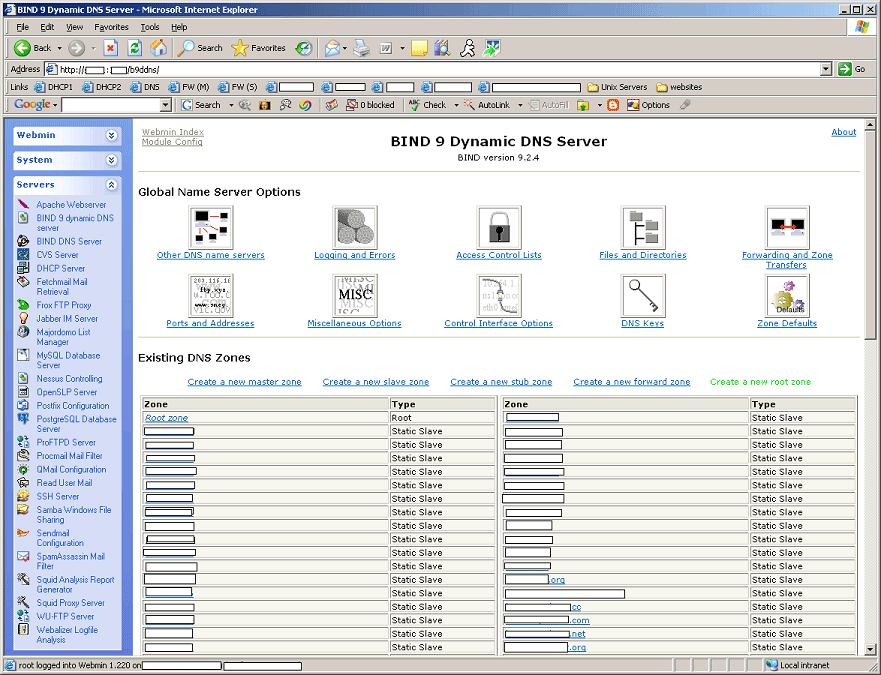BIND, managing
By far the easiest way to manage BIND is via webmin, which is all GUI click and drop-down menus (see image below). But you should at the very least know how to manage it via command line for systems that you cannot set up webmin on for whatever reason or for those times when webmin fails.
To add records to a zone, you'll need to find that zone's file, edit it to include the record, increase your SOA serial number (1st parameter on IN SOA line, commonly with comment "; Serial") and reload your server with
rndc reload
If your server is a slave and you want it to retransfer the records from the master:
rndc retransfer
To check the status of your server:
rndc status
For example:
number of zones: 1077 debug level: 0 xfers running: 0 xfers deferred: 0 soa queries in progress: 0 query logging is OFF recursive clients: 1/0/1000 tcp clients: 0/100 server is up and running
To stop your server:
rndc stop
To flush the DNS cache:
rndc flush
BIND can be a pain to manage properly, and not without reason there are thousands of pages on how to do it written.
- [BIND9.net Manuals]
- bind-users FAQ
- [BIND 9 DNS Administration Reference Book]
- [Pro DNS and BIND]
And here's a screenshot of Webmin's "Bind 9 Dynamic Server" module (which you'll have to install separately from the webmin.com site; the basic webmin BIND module doesn't do views very well and was designed for BIND 8):
